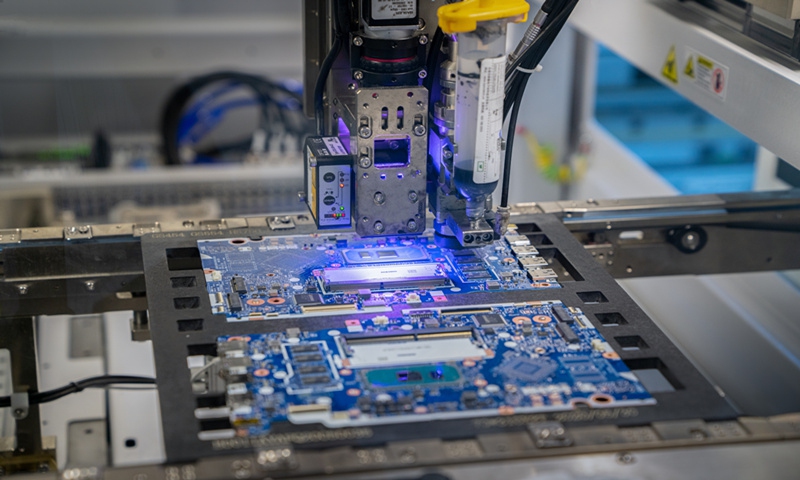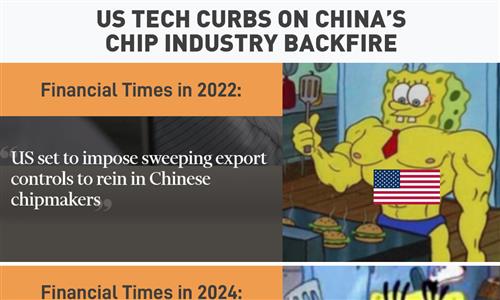US officials' reported Taiwan trip aims to make island 'a complete pawn' of containment strategy

A chip manufacture machine Photo: VCG
US officials will travel to the island of Taiwan in March for a briefing on semiconductor export controls on the Chinese mainland, a Taiwan-based news portal reported over the weekend, a trip that mainland industry insiders believe is aimed at ramping up pressure to make the island "a complete pawn" to serve Washington's containment strategy against the Chinese mainland.
While the Biden administration is pinning high hopes on the trip for winning more points in the upcoming US presidential election, analysts pointed out that Taiwan chipmakers would show certain levels of resistance to meekly following US orders, as they have realized that the cost of "decoupling" from the Chinese mainland is increasingly unaffordable and the strategy itself is putting Taiwan's high-end manufacturers at risk.
Representatives from Taiwan's semiconductor suppliers based in science parks, including chipmaker Taiwan Semiconductor Manufacturing Co (TSMC), have been invited to the briefing, according to the report.
The briefing will provide clarification on tightened advanced chip export control rules the Biden administration slapped on the Chinese mainland in October. For example, specifications on a chip's computational performance density will be provided, the report said.
"It is de facto a trip to exert pressure rather than merely a briefing. Washington wants to coerce the island of Taiwan into further serving its malicious crackdown on the Chinese mainland's tech industry, where chips are seen as a key battlefield," Ma Jihua, a veteran telecom observer, told the Global Times on Sunday.
Ma explained that the US has stepped up its so-called alliance approach in recent months, attempting to get more semiconductor makers from Japan, South Korea, the Netherlands and the island of Taiwan on board, amid US chipmakers' growing objections to the China shipment ban that has eaten up their revenues.
"Biden's tech containment strategy against China did not work out as successfully as planned. Yet as the US presidential election draws near, Biden needs to show proof to convince the US business elites that his China strategy was not a failure," Ma noted. The visit to the island of Taiwan is likely to seek such political points."
He predicted that US officials may also meet Taiwan regional leaders during the trip for the purpose of political manipulation.
It is reported that US chip giant Nvidia has launched artificial intelligence chips tailor-made for the Chinese mainland market, as part of a move to bypass US restrictions on the country, and the chipset can now be ordered, news website jiemian.com reported.
Analysts pointed out that the relentless US sanctions have driven the cost of compliance to an unacceptable level, which makes Taiwan-based semiconductor makers more unhappy with the ban.
"They don't want to be forced to take sides. The integrated circuit industry in the Chinese mainland is rising rapidly, with palpable results in more advanced processes. The chip industry in the island of Taiwan, which is heavily reliant on the Chinese mainland market, might stagger if Chinese mainland chipmakers further boost their self-sufficiency," Ma said.
In response to the US moves to ratchet up export controls in the guise of maintaining "national security," Chinese Foreign Ministry spokesperson Mao Ning said on January 8 that the move is an "out-and-out economic bullying."
"The US behavior is taking a serious toll on the stability of the global industrial and supply chains. It poisons the atmosphere for international cooperation and fuels division and confrontation. This selfish move will inevitably backfire," said Mao.

